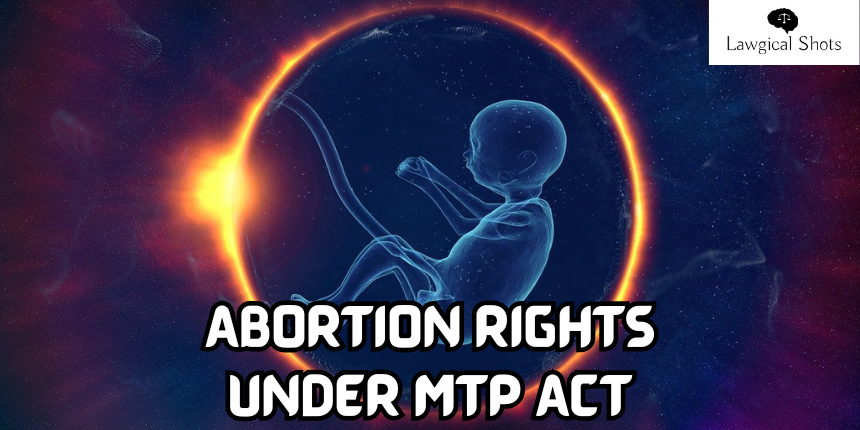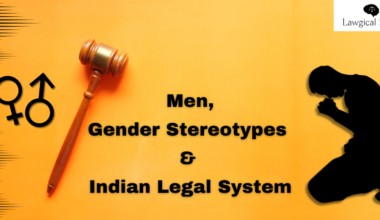Parenthood can be beautiful, tiny hands getting the grasp of your finger can be a feeling out of the world, looking at your sleeping baby smiling can be overwhelming…..but not for everyone!! Parenthood should be a choice and not a force. Reproduction is a natural process, and people should be able to choose whether they wish to have babies or not. However, there are times when choice brings a shocker, all kinds of protective measures fail, and a woman gets pregnant. In such cases, whether she embraces motherhood or abortion should be her own call, isn’t it? Forced parenthood can bring drastic outcomes, ruining the lives of babies as well as parents. Here, we lay the background of abortion rights in India under the Medical Termination of Pregnancy Act, 1971. Whether the right to abortion can be exercised at any trimester of pregnancy, or in specific situations, is laid in detail, to ensure safe termination of pregnancy in India.
Abortion Rights in India
Whenever there is a debate regarding legality of abortion, killing a human life before coming into existence is what weighs the most against the right to abortion in India. Even the Indian Penal Code provided punishment for aborting a child. That is the reason why abortion was illegal in India. In fact, abortion became legal in India only with the MTP Act coming into force in 1971. Even today, not any woman can rightfully seek to terminate her pregnancy at any time. There are rules and regulations regarding who can terminate a pregnancy, till how many weeks abortion is legal in India, whether medical reasons can make a difference in right to abortion, etc.
Medical Termination of Pregnancy Act, 1971
As mentioned above, the advent of MTP Act, 1971 made abortion legal in India. The objective as stated in the MTP Act clearly states that it provides for termination of certain pregnancies by registered medical practitioners. Abortion rights in India do not extend to whims and fancies for any point of time during the gestation period, and cannot be proceeded without a registered medical practitioner. Section 3 of MTP Act lays in detail the scenarios in which abortion is a right in India, while Section 4 states the place where abortion can be done. Listed below are the simplified pointers under Section 3 and 4:
- Pregnancy can only be terminated by a registered medical practitioner in accordance with the provisions pertaining to abortion right in India under the MTP Act;
- Only the pregnancy of 12 weeks or less can be terminated by a medical practitioner;
- In case the pregnancy is beyond 12 weeks but does not exceed a term of 20 weeks, abortion can be done by two registered medical practitioners.
- In case of above scenarios where pregnancy is within 12 weeks or within 20 weeks, if the medical opinion reflects that continuing the pregnancy would cause grave injury to the physical or mental health of pregnant woman;
- A pregnancy within 12 or 20 weeks can also be terminated if medical opinion reflects that the baby is suffering from physical or mental abnormalities so as to cause it to become seriously handicapped;
- The provision further states that in case of pregnancy due to rape, presumption that continuation would cause grave injury to her mental health is there;
- It also recognizes the pain which may be caused due to failure of contraceptive methods leading to an unwanted pregnancy for a married couple;
- The provision clearly states that no pregnancy can be terminated without the consent of the pregnant woman. In other words, abortion rights in India exclusively remain with the woman who is pregnant, and no other relatives except for the scenario below;
- In case abortion for under 18 girls or lunatic women, it is clarified that termination of pregnancy would not be allowed unless written consent is obtained from her guardian;
- As per Medical termination of Pregnancy Act, 1971, abortion can only take place at a Government Hospital or any other place approved by the Government for the purpose of MTP Act.
Rule 3B of the MTP (Amendment) Rules 2021
While the Medical Termination of Pregnancy Act, 1971 allows abortion till 12 weeks, and 20 weeks in specific circumstances, the MTP Rules extend the period to 24 weeks in special circumstances. Rule 3B of the MTP (Amendment) Rules 2021 states categories of women eligible for abortion in India up to 24 weeks are:
- Survivors of sexual assault or rape or incest
- Minors
- Change of marital status during the ongoing pregnancy (widowhood and divorce)
- Women with major physical disabilities
- Mentally ill women including mental retardation
- Foetal malformation having substantial risk of being incompatible with life, or if the child is born it may suffer from such physical or mental abnormalities to be seriously handicapped; and
- Women with pregnancy in humanitarian settings or disaster or emergency situations as may be declared by the Government.
Frequent Queries related to Legality of Abortion in India
Q. Is abortion legal in India for unmarried women?
A. Earlier, an unmarried woman was not considered to be eligible for abortion right in India in accordance with Rule 3B of MTP Rules, 2021. However, the Supreme Court recently ruled that all women regardless of their marital status had the right to abortion in terms of safety and legality under MTP Rules up to 24 weeks. Therefore, abortion is now legal for unmarried women in India.
Q. Is abortion legal in India for under 18 girls?
A. The abortion rights in India under MTP Act are extended to minor and lunatic girls, provided that a written consent is obtained from their guardian, allowing the termination of pregnancy. Apart from that, other conditions provided under Section 3 of the Act should also be met to allow abortion of girls under 18 years of age.
Q. Till how many weeks is abortion legal in India?
A. A registered medical practitioner can proceed with abortion till 12 weeks, while two of them can allow abortion till 20 weeks. However, in certain extreme circumstances, the MTP Rules allow the right to abortion till 24 weeks.
Q. Is abortion legal in India for married people?
A. Yes, the abortion rights in India do extend to married couples facing failure of one of the contraceptive methods leading to an unwanted pregnancy.








